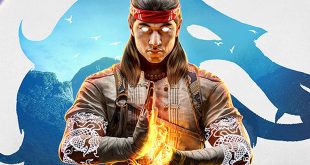Every month an industry leader wraps up MCV/Develop with their unique insight. In October, our Final Boss was Kirsty Rigden, development director at Futurlab. She talks about dancing, her inspirations and confesses to destroying a prototype PS Move controller.
You started off in QA and then moved into design, working on mobile, handheld and home console titles across six companies, how has that broad experience helped you?
Starting my career in QA was hugely beneficial as it allowed me to understand the dev cycle of a game, and how the different disciplines contributed to it.
Working on mobile in the Java days was a great introduction to my game design career. The dev cycles were so small, so I made a lot of games across every genre. Not only were the dev cycles short, but the file sizes were tiny, which led me to be super efficient, designing games to re-use assets in clever ways. A skill that has transferred to managing projects.
Running a studio and establishing a culture is tricky, so I was fortunate to be able to experience this first hand at prior companies. I have definitely cherry-picked practices which worked and have avoided those which I felt didn’t work.
With the greatest respect to your current role, what is/was your dream job?
My dream was always to be a dancer. You spend ages learning, mastering and polishing a dance before presenting it to the world, which is not dissimilar to making a game. Also, there’s something about falling into the flow of a dance that makes you feel powerful, which definitely inspired my design sensibilities.
In respect to the industry’s endless changes, are you keen to grow FuturLab or is it just the right size?
I would like to take FuturLab from 16 people to around 35. To go from one team to two, with the second team alternating between work for hire projects and creating pitches for new games. Publishers and investors are becoming more and more risk-averse and want to see games at a vertical slice stage before making decisions. This is hard for a studio of our current size, VGTR has been a massive help in this respect.
“There’s something about falling into the flow of a dance that makes you feel powerful, which definitely inspired my design sensibilities.”
What’s was the greatest moment of your career to date?
One of the more ludicrous moments was reading an article about one of the Fast and Furious mobile games I worked on and seeing the tag line “A racing game designed by a girl?!”
I also managed to break a prototype of Sony’s PS Move controller. I used to wear wellies a lot and one day I managed to accrue an exceptional amount of static electricity. I picked up the prototype and pulled the metal trigger – cue big spark, a massive electric shock, and one dead controller. This prototype happened to be one of only three prototypes in Europe at the time…
Who (or what) continues to impress you in the industry?
Siobhan Reddy of Media Molecule is a real inspiration. To coordinate a game like Dreams, and to push boundaries like that is remarkable. Just thinking about the logistics of managing that game gives me a headache. I don’t know how Siobhan has time to include the amazing diversity work Media Molecule does or how she manages to stay sane.
You’re a Ukie board member, do you think that there is a single entity we can call the ‘games industry’? And is that a unifying strength or a problematic generalisation?
UKIE’s definition of the ‘games industry’ is interactive entertainment and that’s a pretty good umbrella term to gather us all under. It can be problematic to be lumped together when the mainstream has an issue with, for example, violence in video games when only a small number of the games being made contain depictions of violence. However, it does mean that we can all unite and answer with one powerful voice when challenged.

 MCV/DEVELOP News, events, research and jobs from the games industry
MCV/DEVELOP News, events, research and jobs from the games industry




